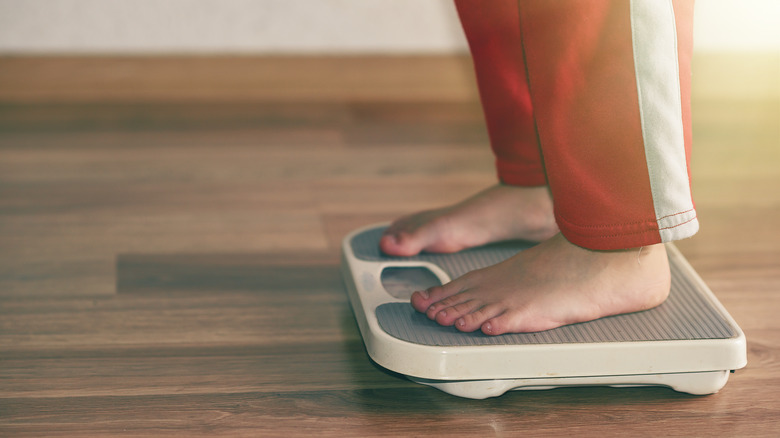What Happens To Your Body When You Fast
The age-old practice of fasting has experienced a rise in popularity over the past few years. There are many types of fasting, and each offers several benefits for most people. Intermittent fasting involves eating within a certain time frame, say from 10:00 a.m. to 6 p.m. Others may fast on certain days of the week. Some people might choose to take longer fasts that last 24 or more hours.
While abstaining from consuming calories can be challenging, research suggests the rewards are worth it. If you've ever considered fasting, here's what you can expect to happen to your body.
When you fast, you give your cells a chance to remove toxins and effectively "clean house." This process is called autophagy, and it is necessary to help cells stay healthy. Without autophagy, cells have a harder time repairing damage and, to make matters worse, more "trash" accumulates (via Cedars-Sinai Medical Center).
Fasting promotes several health benefits
Fasting can help control blood sugar levels, which is good news if you are at risk for diabetes. Going without food reduces insulin resistance, which allows the body to metabolize glucose more efficiently. In addition, fasting helps stabilize blood sugar levels (via Healthline).
Studies also show that fasting helps promote weight loss. The idea is that going without food for certain periods of time limits snacking. In addition, when your body uses all of its readily-available carbohydrates for energy, it then burns fat stores for energy (via University of Michigan Health).
Some evidence indicates that fasting fights inflammation. While some inflammation is normal, chronic inflammation is linked to diabetes, arthritis, cardiovascular disease, psoriasis, and chronic obstructive pulmonary disease (via Medical New Today). Fasting reduces inflammation, and although the reasons why are not entirely clear, Miriam Merad, M.D., Ph.D, seems to think it has to do with pro-inflammatory cells called "monocytes," which seem to go dormant during fasted states (via American Association for the Advancement of Science).
If you have diabetes or a chronic disease, you should check with your doctor before trying a fast. Likewise, pregnant women, the elderly, and children should also seek medical council before fasting (via WebMD).


